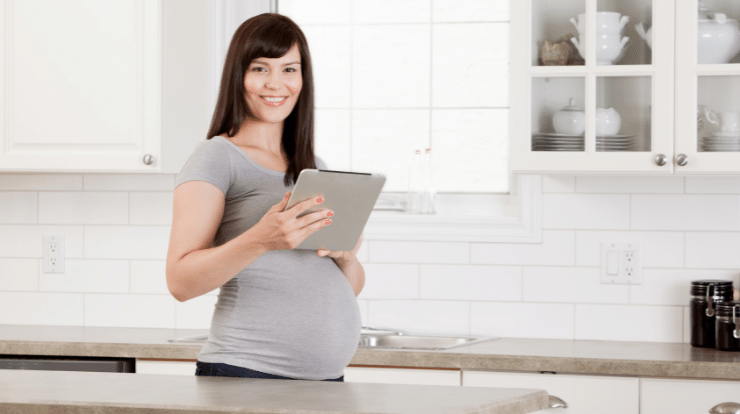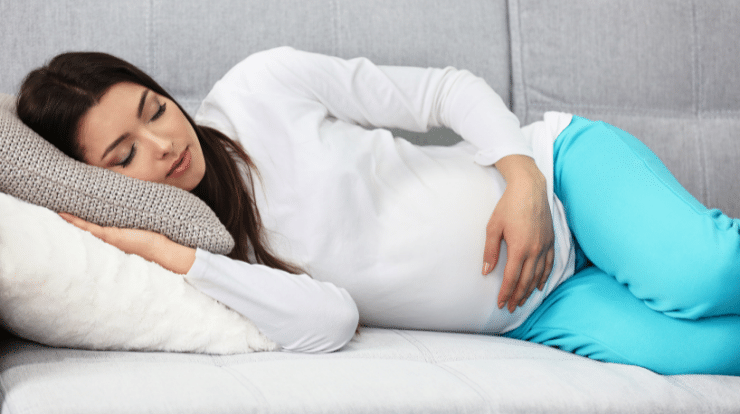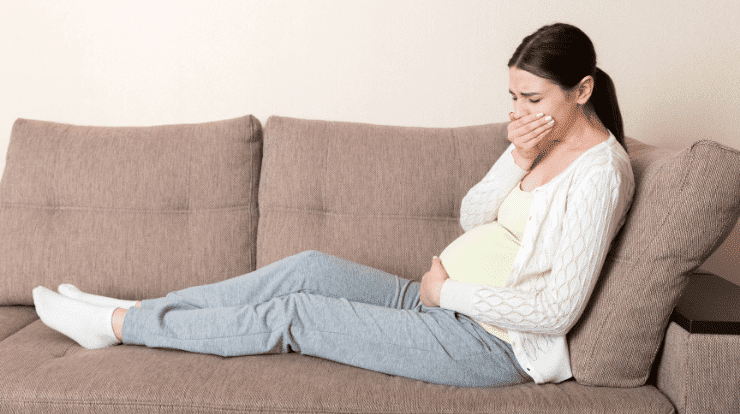
Constipation during pregnancy, When a woman is pregnant, her hormones are altered. One such hormone is progesterone – the hormone that causes the body to tense up. And when your body is tense, it affects digestion – especially of food moving through the intestines which can lead to problems with constipation.
Is constipation during pregnancy normal?
Constipation is common during a woman’s pregnancy. According to a study done by Acta Obstetricia et Gynecologica Scandinavica, almost three-quarters of pregnant women will experience constipation or other bowel issues at some point. That’s because the muscles in their stomach have become weak and they are unable to move the colon along its normal path. A woman may need to adjust her diet as well as her lifestyle habits to keep her body healthy through these changes. Many over-the-counter pills and remedies can help with constipation relief, but there aren’t as many solutions available when pregnancy is involved!
Is constipation during pregnancy dangerous?
Pregnancy constipation is rarely dangerous. Sometimes, the condition makes you feel uncomfortable but it will not hurt your baby. Most of the time, though, it’s a symptom of another serious health condition that requires immediate medical attention.
What are the symptoms of constipation during pregnancy?
Following are the symptoms of constipation during pregnancy:
- less frequent bowel motions
- farting
- pain in your tummy
- hard stool
- pain on passing a bowel motion

What are the causes of constipation during pregnancy?
The causes of constipation during pregnancy depend upon which stage the condition is occurring.
Following are the causes of constipation during pregnancy:
1. Hormones:
When a pregnant woman’s hormone levels change, it can affect the movement of stool through the body. Increased estrogen slows down the intestines’ pace and prevents water from leaving stool in the colon – which makes it harder for women to have bowel movements during an early stage of pregnancy, causing their stools to become harder and less frequent to pass.
2. Prenatal vitamins:
Prenatal vitamins are full of iron, a mineral that helps provide energy, healthy nerves, and the formation of red blood cells. But too much iron can cause constipation and black or dark-colored stools.
3. Pressure from the uterus:
The growing uterus delivers a lot of pressure on the bowel during later pregnancy and this can make it harder to move stool through the intestines. Besides having infrequent bowel movements, constipation can cause bloating and hard stomach pains. It makes bowel movements hard to pass and might even feel like it has stuck in your system.
How long is constipation during pregnancy?
As a pregnant woman, it is likely that you will experience constipation at some point during your pregnancy. This could happen as early as the first trimester but can also continue well into the third trimester of your pregnancy and sometimes even after the birth of your child.
5 Tips to relieve constipation during pregnancy
Following are the tips to relieve constipation:
1. Eat more fibre:
High dietary fibre intake is beneficial for pregnant women as it prevents constipation, transfers nutrients and vitamins to the unborn baby, and overall promotes good health. It is recommended that a pregnant woman consume 25-30 grams of dietary fibre every day to keep regular and stay healthy as well.
Good choices include beans, vegetables, bran cereals, peas, fresh fruits, lentils, prunes and other whole-grain foods. A nutritional diet plan containing high fibre content can be made using raspberries, figs or strawberries, apples, bananas. One may create a refreshing fruit salad by cutting them up into smaller pieces or roast sweet corn stems along with Brussels sprouts and carrots for a delightful side dish.
2. Drink like a fish:
Be sure to stay hydrated during pregnancy. As part of a healthy diet, it could be beneficial to drink as much water as possible. Pregnant women should consume at least 8 glasses of water before the sun goes down to help keep their digestive system working smoothly through the day and night.
3. Don’t chow down:
If you’re looking for a safe and effective way to relieve constipation, try breaking up your meals into smaller portions. This will help your body digest the food better. When you eat a large meal, it puts an excessive amount of stress on your digestive system.
4. Keep moving:
Staying fit can help make easing the constipation that comes with pregnancy much easier. Exercising helps stimulate your bowels and has been known to help alleviate constipation for pregnant women. For expectant mothers, it’s suggested that you try to get some exercise at least three times a week for up to 30 minutes each. There are limitless ways to stay active: try hiking down your favorite trail, swimming at your local gym or maybe even giving prenatal yoga a try on a relaxing afternoon!
5. Soften up:
If other natural remedies have been unsuccessful, doctors will sometimes prescribe Colace stool softeners for pregnant women with constipation symptoms. Colace is available online and can be purchased without a prescription. However, the use of these medications for long periods may cause dehydration or change your electrolyte balance.
Stool softeners are especially helpful for pregnant women. Pregnant women need more iron during the first few months of their pregnancy but these iron pills can result in constipation in many cases. There are a lot of helpful medications that allow mothers to get relief so they can be more comfortable during this time.
Is prune juice good for constipation during pregnancy?
Many expectant mothers are wondering if prune juice is good for constipation during pregnancy. It is not a secret that during pregnancy, women experience constipation. It happens because of the hormone relaxing, which relaxes the pelvic muscles, making it harder for stool to pass. There are many possible causes of constipation during pregnancy, including hormonal changes, eating habits, and the pressure from the baby and your growing uterus. Prune juice is the best natural product for constipation during pregnancy, though constipation is a very common complaint of pregnant women.
Prune juice is a mild stimulant laxative that should help relieve constipation during pregnancy. However, if you have never used it before, it is better to start with small doses and increase them gradually to let your body adjust to a regular intake of prune juice. The general dose is a tablespoon of prune juice in the morning and evening.






